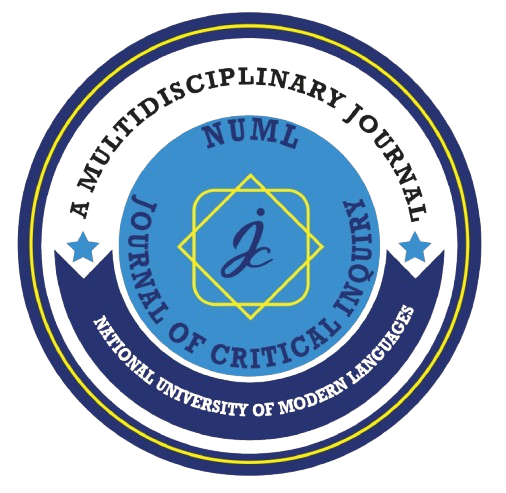Diasporic Intertextual Musings: The Relevance of Classical Urdu Poetry to Contemporary Pakistani Situation in Nadeem Aslam’s The Golden Legend
Main Article Content
Abstract
Anglophone literary works usually refer implicitly or explicitly to the culture, language and literature of authors’ native lands. Nadeem Aslam is one such author who makes explicit use of native language and literature in his fiction. Most of his works refer to classical Urdu poetry, phrases and extended adjectives to embellish as well as celebrate the rich legacy of the classical Urdu poetry tradition. Thus, intertextuality is a predominant feature of Aslam’s latest novel, The Golden Legend (2017). It is is not only an intertextual narrative but also an intercultural and inter-linguistic text because it incorporates popular classical Urdu poetry’s diction, metaphors and symbols. Aslam employs old poetic expressions and connects them to specific contexts of the characters in his novels. For instance, Urdu expressions like zamana and chaaragar are of special importance in the narrative structure of the novel. Moreover, the spatial structures of ‘garden’ and ‘Cordoba Mosque’ connect this text with classical Urdu literary tradition. Additionally, the English translations of many Urdu verses enrich the implied meanings of this novel. This study conducts a hermeneutic textual analysis of Aslam’s novel according to the theoretical frameworks of ‘intertextuality’ proposed by Julia Kristeva and Gerard Gennette. This paper contends that the use of Urdu language and literature is not random but a deliberate narrative technique that demonstrates the relevance of Urdu classical poetry to the contemporary socio-political situation of Pakistan. The Golden Legend illustrates the continuing relevance of Urdu classical poetry for present-day Pakistan and forges a new literary tradition of Urdu inspired poetic-prose in the mainstream contemporary Anglophone fiction.






